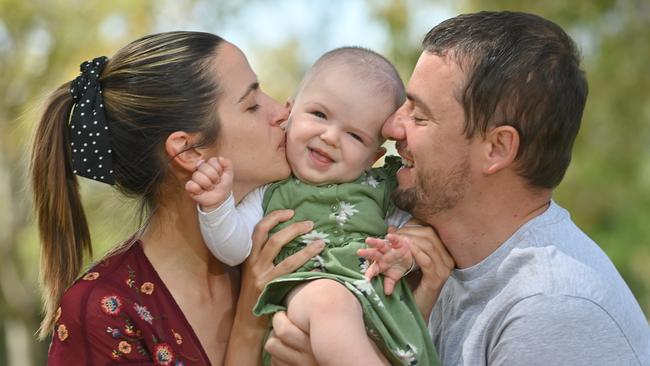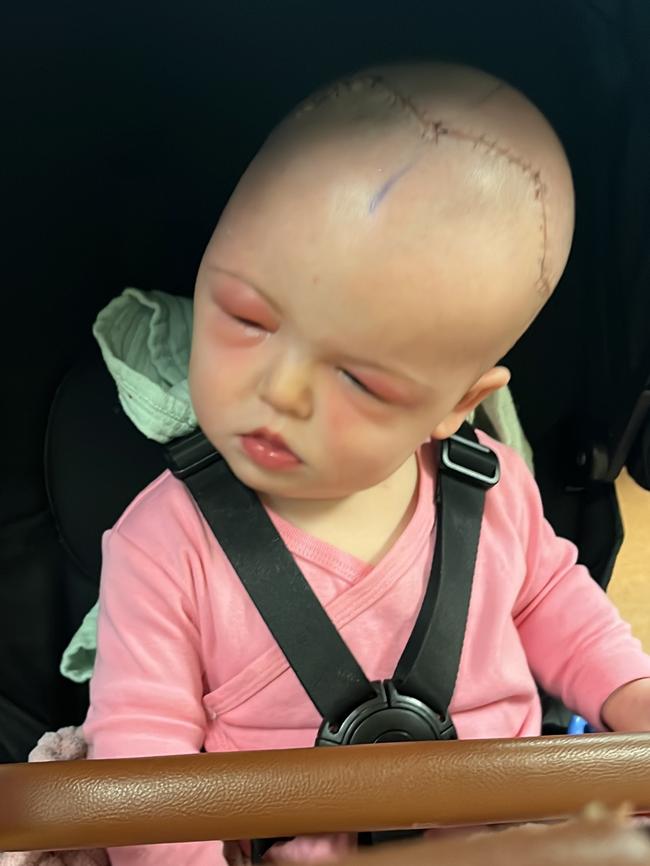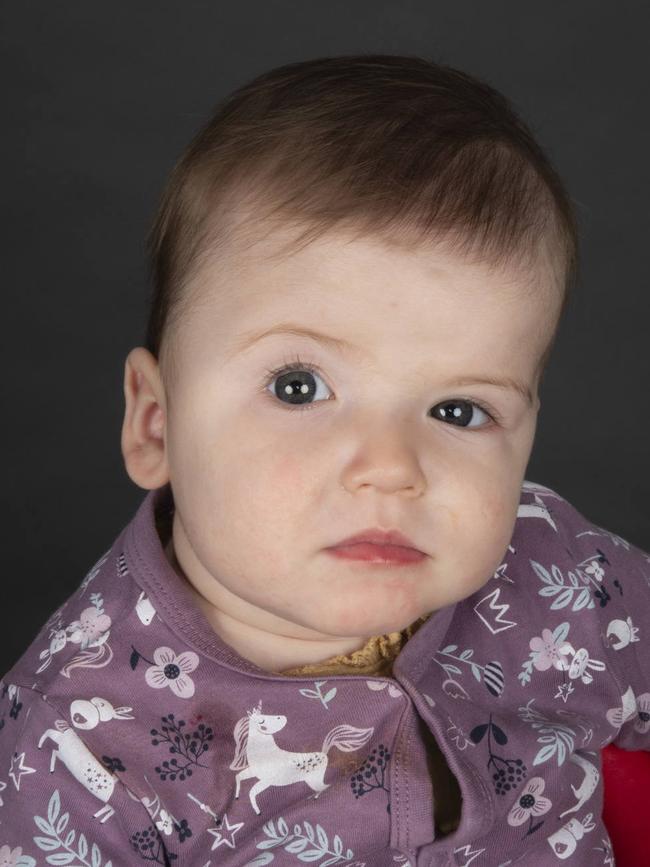Inside baby Dalia’s lifesaving trip to Adelaide
It’s hard to believe what little Dalia has been through since she arrived in Adelaide with her family in January.

Lifestyle
Don't miss out on the headlines from Lifestyle. Followed categories will be added to My News.
As a beautiful smile breaks out on little Dalia’s face, it’s hard to believe what she and her parents, Armin and Selma Amidžić, have been through since her arrival in January.
Diagnosed with a rare birth defect in March, Dalia and her family have travelled almost 15,000km from their home in Bosnia for lifesaving surgery in Adelaide’s world-renowned craniofacial unit.
Now recovering at Ronald McDonald House, father Armin remains in awe of his special little girl, who’s sporting a line of stitches across the top of her head.
“She is braver than me. If I had this operation I’d be laying in bed crying for six months,” he said.
“But she was on her feet after 10 days. You cannot believe it is possible. She’s so positive, always smiling.”
Born with an asymmetric face, Dalia’s grandmother was the first to notice something wasn’t right with the newborn.
“For us, she was just a cute child that we loved but her grandma noticed one eye was not as big as the other eye,” Armin said.
Bosnian doctors couldn’t provide answers so the family drove five hours across to neighbouring Croatia to see specialists. They diagnosed Dalia with the rare condition, unicoronal synostosis, or the premature fusion of two of her skull plates.
Found in only one in 5000 babies, the condition leaves no room for the brain to grow and if uncorrected, can lead to facial deformities, developmental delays and in extreme cases, can also be fatal.


“I was shocked, I was lost. I was shaking and crying,” said mother Selma.
The cost of the delicate surgery was prohibitive in Europe, Armin said, with very few craniofacial clinics available to do such a unique operation.
“There was no chance we could afford it,” he said.
Just as they started to lose hope, Selma found a craniofacial group on Facebook, and connected with a woman who had been in a similar situation.
She helped refer the family to the Women’s and Children’s Hospital’s Craniofacial International Program, and told them about Adelaide’s Ronald McDonald Charity House.
Within three weeks, the Amidžić family were granted a visa, flights to Adelaide were organised, and the operation booked for October 10.
“For me it was like a dream,” Selma said.
“I couldn’t believe there is this free treatment and accommodation near the hospital – it’s unbelievable. The RCH team had a profound, positive impact on our lives by helping us navigate a foreign country and connect with other parents who faced similar challenges.”

Last year, RMHC SA provided accommodation for 251 families, and a total of 15,191 nights of accommodation.
Among these, more than a quarter of the families staying at the house, in North Adelaide, were related to craniofacial conditions.
Dalia spent six days in hospital post the six-hour operation, completed by Dr Walter Flapper, before moving to the RMHC house where she’s making a full recovery. The family will return home to Bosnia on November 27.
“This was hard but amazing surgery, because they can change completely the life of a child,” Selma said. “When I saw her afterwards, I was in tears. I can’t explain it.”
Armin said he still “can’t believe” Adelaide has a unit just for craniofacial surgery.
“It’s very unrealistic for us. But now there will be no problem for Dalia. She will have a normal life – she’ll just have this big scar, and one day we will tell her about this,” he said.
McHappy Day on November 18, raising funds for Ronald McDonald House charities which supports families of children in hospital.





